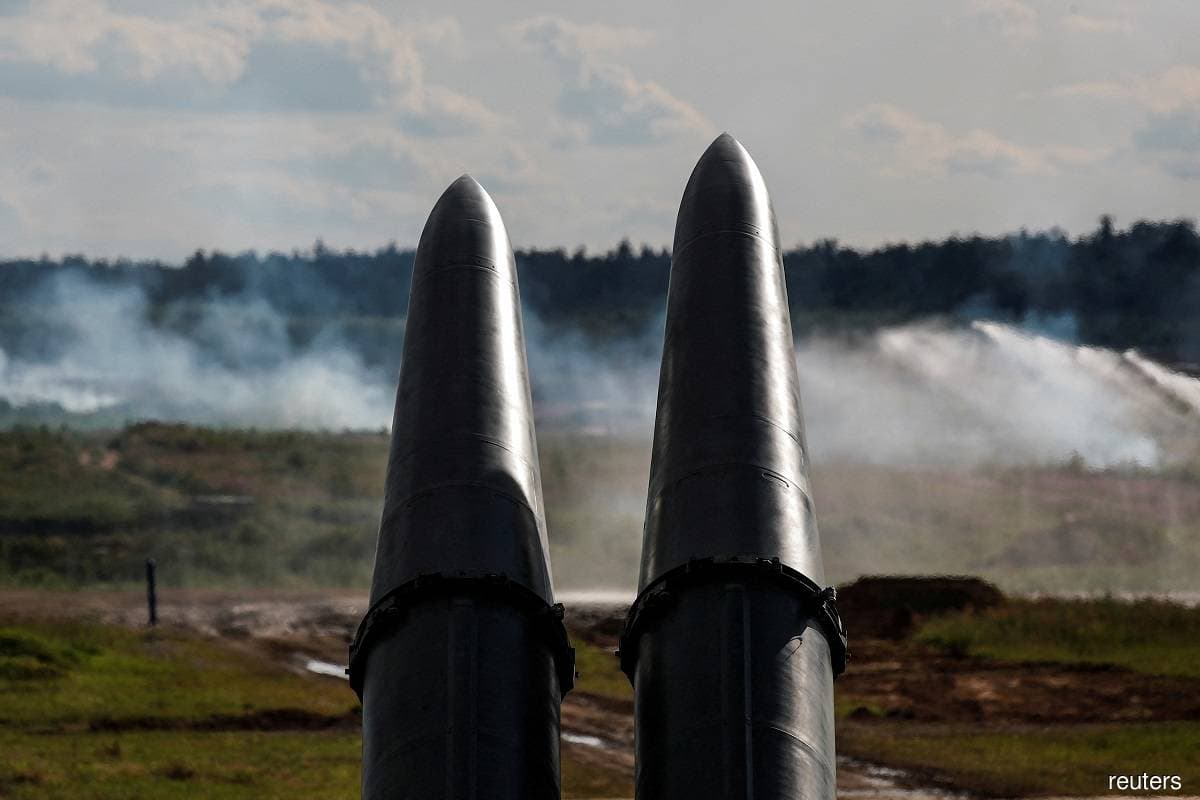
The Asia-Pacific is a ticking time-bomb. Some may even want it to tick faster. And no one seems to be in any hurry to avert likely disaster. Not the United Nations (UN), resolved at birth “to save succeeding generations from the scourge of war”. Nor the Asean Regional Forum (ARF), conceived to preserve and enhance the region’s peace and prosperity, including through efforts to resolve conflict.
The region is now more fragmented, militarised and polarised than ever as a resurgent China is perceived as a threat by the US and its allies. Contending regional economic blocs have emerged, security groupings consisting of the US and her allies have increased and arms expenditures have spiked.
China’s expansive claims and militarisation of the South China Sea have caused apprehensions among the international community. Its assertive behaviour with respect to disputed territories in the South and East China Seas has raised serious concerns among the affected states, including Malaysia.
Sanctions and a perceived common threat from the West have succeeded in driving China and Russia closer together, though China has reservations regarding Russia’s invasion of Ukraine.
Frustrated at the lack of meaningful engagement with the US, North Korea passed a law in September that declared its nuclear weapon status “irreversible”. The law also prohibits further talks with the US on denuclearisation, though Pyongyang will no doubt respond when it considers conditions appropriate.
The region edged closest towards conflict earlier in August when China conducted intensive military drills around Taiwan as a reaction to what it deemed was a deliberately provocative visit to the island by US House of Representatives Speaker Nancy Pelosi.
The potential for conflict and war between the China and the US and its allies remains as provocations and reactions continue to destabilise the region.
The latest aggravation is the passing of the draft Taiwan Policy Act by the US Senate Foreign Relations Committee. It is set to be tabled soon at the US Senate and House. The Act proposes to designate Taiwan a “major non-Nato ally” and enhances US political, economic and military ties with the island. The proposed Act further compromises US observance of the one-China policy.
War in the Pacific could well be far more disastrous in its consequences than the war in Ukraine. It will directly engage the military forces of several major powers, impact gravely on some of the world’s largest economies, unhinge the world’s busiest trading routes and supply chains, and wreak extensive environmental damage.
Above all, millions of people could be displaced or perish. The humanitarian cost can be colossal. The entire region and the world, already reeling under the effects of the Covid pandemic and the war in Ukraine, will suffer from the fallout. Restoring order, peace and growth will be a mammoth task.
War and turmoil on both sides of the Eurasian landmass will bring mankind the closest to yet another horrendous World War three-quarters of a century after the last.
With the World Bank raising the possibility of a global economic recession next year and the worsening environmental and climate conditions around the globe, it looks like a perfect storm is brewing.
The danger is clear and it is present. Concerted action is required to prevent the region from sliding further towards disaster. The two institutions that are perhaps best to shepherd this effort are the UN and Asean. Despite their acknowledged weaknesses, they possess some of the qualities necessary for the role. Working in support of each other, there is much that can be achieved.
The UN has to make its presence felt in the region, as much as it has with respect to the turmoil in Ukraine. Secretary General Antonio Guterres is the voice of the international community. He can bring to bear the tools that are available to the organisation, including the UN General Assembly, to persuade the major powers.
Asean is recognised as a neutral and non-aligned organisation that is dedicated to the promotion of peace and stability through dialogue and cooperation. Importantly, it anchors the ARF, which includes among its participants all the major powers as well as the other countries in the Indo-Asia-Pacific region.
The fundamental challenge before the UN and Asean is to help the region navigate peacefully from a unipolar world centred in the US and the West for the last three hundred years to a more multipolar geo-economic order in which wealth at the top is shared with several Asian and other emerging economies.as well.
This overarching geopolitical issue colours and aggravates virtually every other security problem in the region. They include the three flashpoints of likely conflict, namely the cross-Strait issue, the situation on the Korean Peninsula, and the disputes in the South and East China Seas.
Uppermost is the need to prevail upon the major powers and the immediate countries involved to abide by international law and recognised international norms as they pursue their respective interests. The region will be a much more peaceful place if they do.
The Taiwan issue is the most urgent to address. China and the Taiwan authorities should continue with earnest peaceful negotiations. Third parties should assist both Beijing and Taipei in this matter, instead of stoking sentiment and taking actions that aggravate the situation.
They should abide by the one-China principle and avoid taking sides. They should cease conducting naval patrols in the Taiwan Strait and holding joint military exercises in the vicinity. They should stop making statements attacking either side. This will greatly assist to lower tensions and foster an atmosphere more conducive to peaceful negotiations.
The UN and Asean are well positioned to make the above happen.
Tan Sri Mohamed Jawhar Hassan
Adjunct Professor
Asia-Europe Institute
University of Malaya
The views expressed are the writer's own.